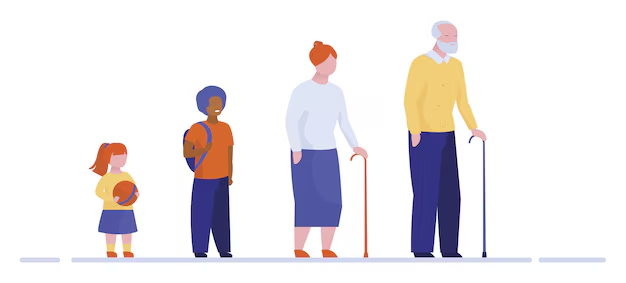It is no question that our society has long portrayed aging as a negative process.
The amount of skincare that has been made and promoted, from wrinkle prevention creams to dark spot correcting serums, only attests to the negative perception of aging present in our society.
Social media influencers and even young tweens have promoted and used anti-aging products all because they do not want to age.
Although this may not seem like a huge issue in today’s society, ageism is a huge issue that stems from this dislike of aging.
Ageism is the discrimination and prejudice based on a person’s age, supported by negative and inaccurate stereotypes. Somehow, it is a prejudice that continues to be socially acceptable in our society.
Ageism can be displayed by stereotypes of old individuals as being frail, weak, and, and out of touch with the present. However, just as how we shouldn’t make these assumptions about a certain group of people, we shouldn’t make these generalizations about our older population.
Negative views on aging can have a very negative effect on our older adults, both physically and mentally.
Ageism is also present in healthcare, and the discrimination older people face when receiving healthcare can discourage them from seeking healthcare at all. Issues like vision loss, dizziness, joint pain, and falls, which would be checked out immediately for younger patients are oftentimes overlooked in older patients, and attributed to their old age.
Obviously, this causes cognitive decline, more hospital stays, disability, worse health and quality of life, and depression, since they feel that doctors are not taking their issues seriously.
Additionally, many older adults may fail to get certain treatments because of the stereotypes present about older adults. Also, in many clinical trials, older individuals are not emphasized nearly as much, and are sometimes even left out completely.
Mentally, ageism can cause a negative perception of themselves, and can greatly negatively affect the mental health of these older individuals.
They may begin to see themselves as a burden, and feel helpless and useless. This is called internalized ageism, in which older adults have a negative view on themselves, and they can feel self-conscious or even resent themselves.
Societal opinions in the United States have pushed older individuals to have internalized agism. Many studies suggest that having a negative perception of self can decrease in self-reported performance in activities of daily living, increased number of illnesses, decreased self-reported physical function and self-rated health, and increased risk of mortality.
It also lowers their self confidence and decreases their wellbeing, as they see themselves more negatively.
In Japan, where older adults are celebrated and treasured, they have the longest lifespan in the world.
We should treasure and celebrate our older population as well to increase the wellbeing and health of our older generations, and change our portrayal of aging as a negative process.
Obviously, agism is a larger problem than we thought it was, and it needs to be stressed to truly make an impact on the aging populations’ mental and physical health.

